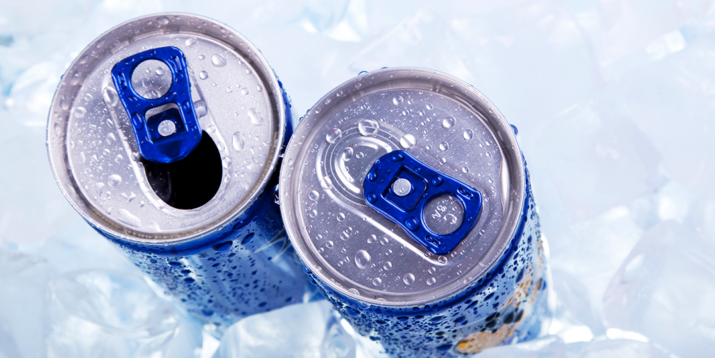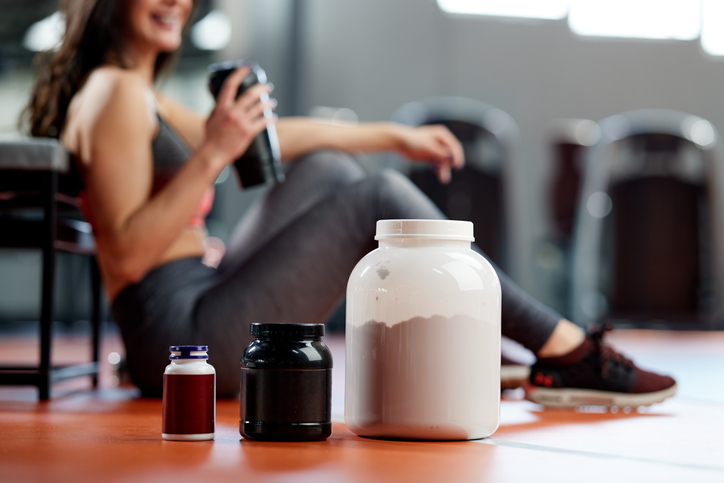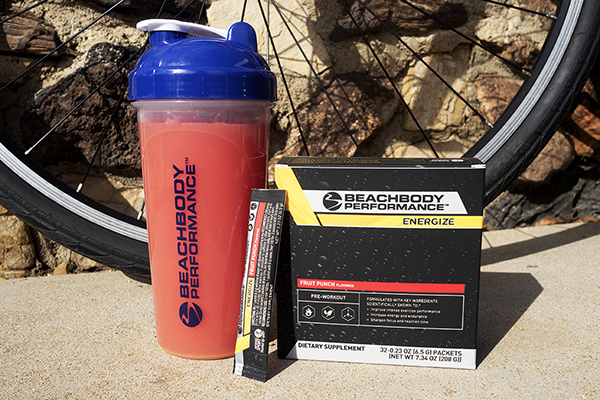Should You Have an Energy Drink Before a Workout?

So, you have a challenging workout scheduled after work, but you’re feeling a little depleted. Squeezed for time, you make a pit-stop at a convenience store. You scan around looking for something that might help power you through your session — bananas, mixed nuts, bottled water — and see, in the cooler, a shelf of brightly colored energy drinks promising exactly what you need.
There’s one that boasts hours of focus, one that all but guarantees massive muscles, one that says it will pump you up till you virtually explode. But what these energy drinks don’t include on the label is that their primary ingredients are sugar and a hefty dose of caffeine.
Maybe it’s time to change our thinking. Pre-workout supplements are formulated to help you optimize performance, particularly during higher-intensity activities, and are decidedly a better choice than run-of-the-mill energy drinks. Here’s why.
The Pros and Cons of Energy Drinks

1. Sugar
Pro: Calories and sugar get a bad rap in our weight-obsessed culture. Calories are simply a measure of the amount of energy in a food, and sugar is an efficient, palate-pleasing fuel for many body functions. To perform at your best, you need adequate amounts of both. That goes double if you’re a regular exerciser.
Trying to get through a hard workout on a completely empty stomach — particularly if you’re doing something anaerobic like lifting weights or HIIT — can be like dragging a stubborn dog to the vet: You might get there eventually, but it will be a fight every step of the way.
That’s why most experts recommend eating a full meal an hour or two before performing anaerobic exercise — or, failing that, fueling up beforehand with a small snack like a piece of fruit.
Con: If you’re trying to keep your fat stores in check, excess added sugar will work against your efforts. True, you burn some of that sugar during your workout, but, like anything else you consume, the sugar and calories in that energy drink factor into the calories-in, calories-out equation that determines if you lose weight, gain weight, or stay the same weight in the long term.
“The high amounts of sugar found in energy drinks are not the best way to fuel for exercise,” says Paul Falcone, principal scientist at BODi. “It also may contribute additional calories that may not help you achieve your overall health goals.”
2. Caffeine
Pro: Caffeine is another common active ingredient in energy drinks — and research has shown that it can be an effective one. A meta-analysis concluded that caffeine had “significant ergogenic [performance-enhancing] effects…on maximal muscle strength of upper body and muscle power.”
Another small study found that caffeine enhanced jumping ability in female athletes. So, if you’re on the hunt for a legal, safe, and effective way to give your gym performance a measurable boost, look no further than the active ingredient in your morning cup of joe.*
Con: But like sugar, caffeine has limits. Take too much, too often and you not only get jittery — you become more tolerant to its effects so that what once hyped you up now barely gets you to baseline. Moreover, some energy drinks contain upwards of 300 mg of caffeine — well over half the daily amount considered “safe.”
3. BCAAS
Branched-chain amino acids — leucine, isoleucine, and valine — are another ingredient sometimes found in sports supplements. All three BCAAs are plentiful in foods that contain protein (including dairy, animal, and vegetable sources), so it’s not necessary to consume large amounts of them in supplement form — particularly before a workout.
“Generally, BCAA’s play a greater role after your workout to aid in recovery and rebuilding,” says Falcone.
What Should You Consume Instead of Energy Drinks?

Are there better choices to make before your workout? Absolutely.
You may experience intense exercise as a muscle-pumping, leg-churning sweat-fest, but on a molecular level, a workout is a score of complex chemicals, all reacting at blinding speed over and over again: fuel converting to a usable form; fuel burned and turned into kinetic energy; muscle fibers gripping and releasing from one another; waste products clearing; back-up fuels mobilize; oxygen pumps into the system and carbon-dioxide pumps out.
Tailoring what you consume beforehand to your workout — as with a pre-workout supplement — can impact how efficiently those chemical reactions take place and whether you shamble out of the gym feeling like a dishrag or fly out feeling like a superhero.
How Pre-Workouts Aid Your Routine

Some of the ingredients that are particularly beneficial to high-intensity exercise are:
- Caffeine to help provide energy and improved focus and attention.*
- Beta-alanine helps you fight fatigue and perform better by helping your body produce more of the amino acid carnosine. This amino buffers muscle acids that result from exercise. *
- Quercetin is a powerful phytonutrient that works synergistically with caffeine and beta-alanine to help delay exercise-induced fatigue and boost performance.*
“Caffeine and beta-alanine are some of the most clinically-researched ingredients available on the market,” says Falcone. “And the evidence shows that they can help you get the most out of your workouts.”
Falcone’s recommendation: Skip the energy drinks and go for something formulated to help you reach your goals the fastest: “Energize Pre-Workout provides key ingredients to optimize your workout that are not found in energy drinks,” says Falcone. “These ingredients provide more than just energy — they help to fight fatigue during exercise and to enhance strength gains.”*
*These statements have not been evaluated by the Food and Drug Administration. This product is not intended to diagnose, treat, cure, or prevent any disease.
